Ban Muang Pam: A Cultural and Natural Gem in Northern Thailand
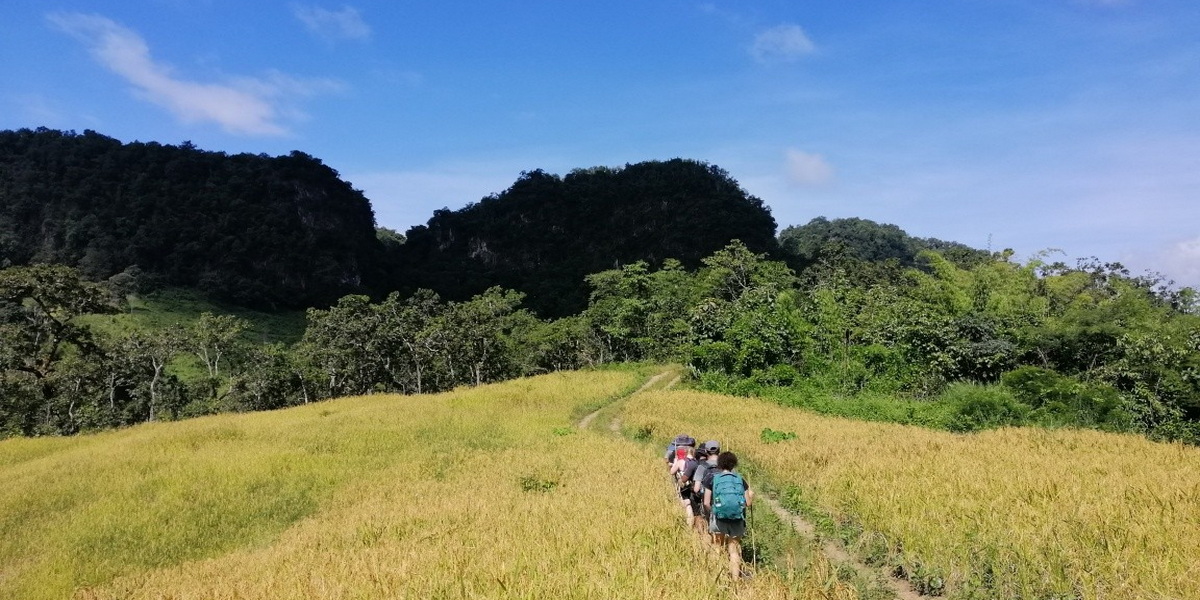
Discover the Timeless Traditions and Untamed Beauty of a Karen Village
🌄A Journey into Tradition and Tranquility
Tucked away in the misty mountains of Pang Mapha District, Mae Hong Son Province , lies Ban Muang Pam — a quiet yet culturally vibrant village that offers travelers a rare glimpse into the traditional life of the Karen (Pga K’nyau) people.
Far from the bustling cities and tourist trails, this remote settlement has preserved its customs, language, and way of life for generations. With its lush landscapes, breathtaking caves, and warm hospitality, Ban Muang Pam is more than just a destination — it’s an invitation to step into a world where time moves slowly, and culture still breathes through every thread, stone, and song.
🏞️ Location & Geography
- Province: Mae Hong Son
- District: Pang Mapha
- Subdistrict: Tham Lot
- Elevation: ~1,000 meters above sea level
- Population: Approx. 130 households (~600 residents)
Nestled among rolling hills and dense forests, Muang Pam village sits along an ancient route once used by traders crossing between Myanmar and Thailand. Today, it serves as a peaceful cultural enclave surrounded by nature.
The village enjoys a cool climate year-round, especially during the winter months when temperatures can drop below 15°C. The landscape is dotted with rice terraces, bamboo groves, and sacred sites that reflect both the spiritual and agricultural roots of the Karen people.
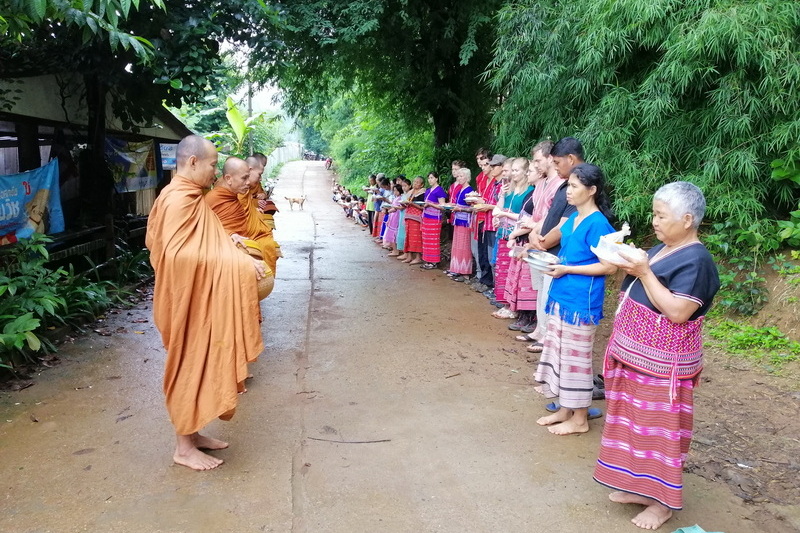
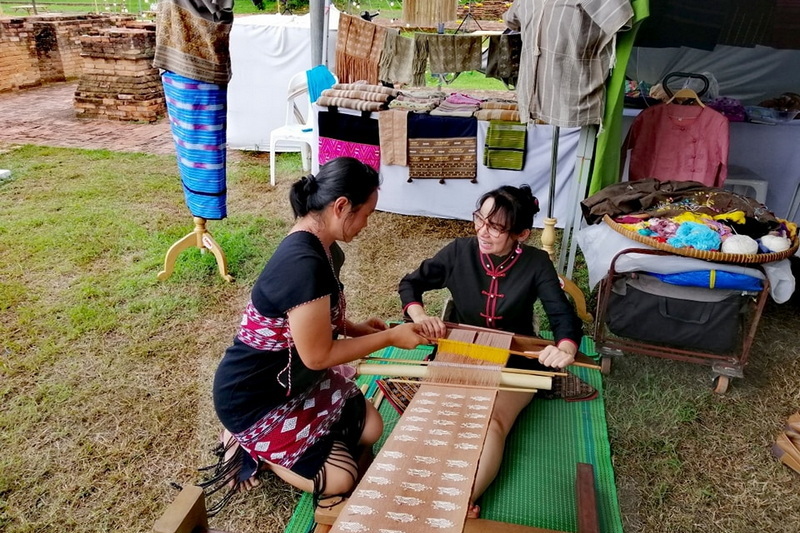
👨👩👧 Ethnic Identity and Social Structure
The majority of villagers belong to the Pga K’nyau subgroup of the Karen ethnic group , known for their distinctive clothing, weaving traditions, and spiritual beliefs.
Language: The community speaks Sgaw Karen , though many younger residents also understand Thai due to increased access to education and tourism.
Religion: Most villagers follow animist beliefs , honoring spirits that dwell in trees, rivers, and mountains. Some families have adopted Buddhism or Christianity , but ancestral rituals remain central to daily life.
Kinship System: Family units are extended and live together under one roof. Elders hold respected positions within the community, guiding decisions and maintaining harmony through consensus.
This strong social fabric ensures that traditions endure even as modern influences gradually reach the village.
🧵 Weaving Stories into Fabric
Weaving is not just a craft in Muang Pam village — it’s a form of cultural expression passed down from generation to generation.
Women spend hours at handlooms, producing textiles dyed with natural pigments extracted from indigo leaves, makham bark, and turmeric. Each pattern tells a story — some represent rivers and mountains, others depict birds, stars, or ancestral dreams.
Many women still wear brass coils around their necks , a tradition believed to symbolize beauty, strength, and status. Though not every woman chooses to wear them today, those who do offer fascinating insights into how culture evolves while still holding onto its roots.
Visitors can participate in weaving demonstrations, try spinning cotton, and purchase handmade items directly from artisans — supporting local livelihoods and sustainable development.
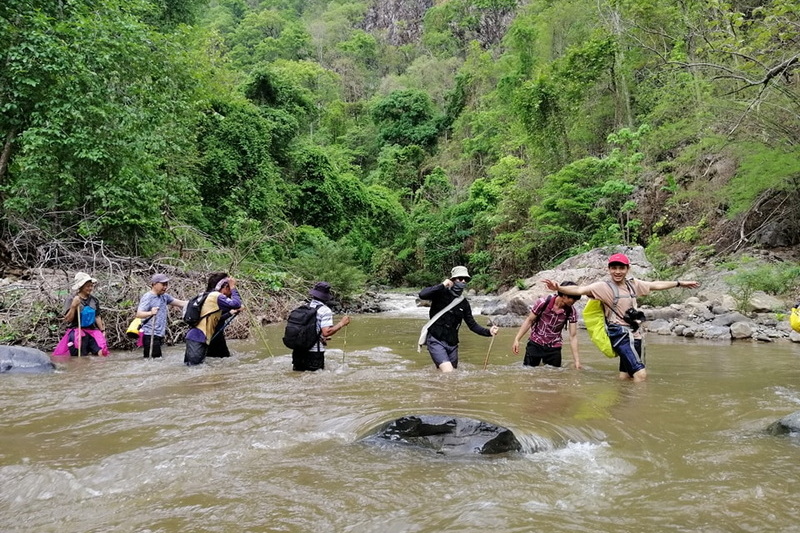
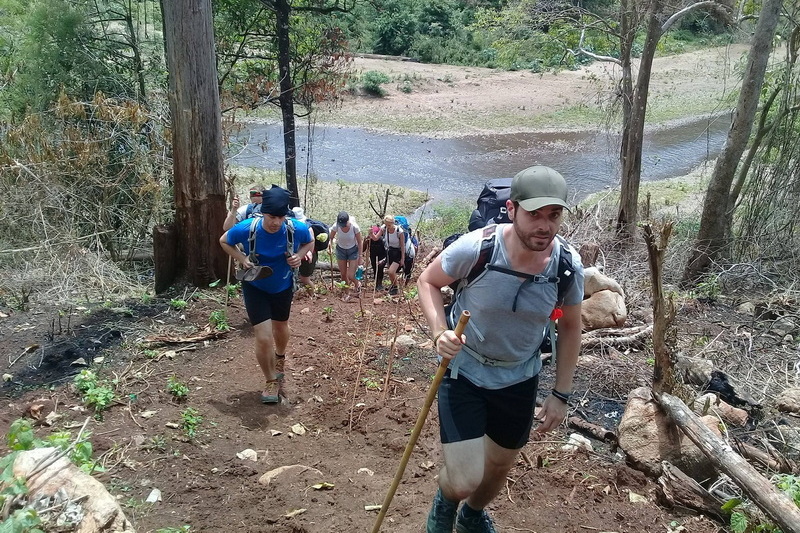
🚶♂️ Adventure and Exploration
For those seeking active travel, Mae Hong Son jungle trek routes around Ban Muang Pam offer unforgettable journeys through untouched landscapes.
Tham Lot Cave: A naturally formed tunnel cave that you can walk through, surrounded by stalactites and echoing sounds of dripping water.
Wang Pla Fish Sanctuary: A protected pond where large fish are believed to house ancestral spirits; local rules strictly prohibit fishing here.
Nature Trails: Guided treks take visitors past cascading waterfalls, bamboo groves, and panoramic ridges. These walks aren’t just physical journeys — they’re cultural ones, offering rare glimpses into a lifestyle deeply connected to the land.
🏘️ Homestays and Community-Based Tourism
Ban Muang Pam has embraced Community-Based Tourism (CBT) , allowing visitors to stay in locally-run homestays and experience life as it truly is.
Houses are built on stilts using wood and bamboo, with open-air verandas and simple yet cozy interiors. Meals are home-cooked, often featuring organic vegetables grown in family gardens and freshly caught fish or chicken.
Staying overnight gives you a chance to:
- Share stories with locals by the fire
- Learn about traditional farming methods
- Wake up to stunning mountain views
- Participate in daily village life
All income generated from tourism goes directly back into the community, supporting education, healthcare, and environmental protection efforts.
👉 Tour Programs
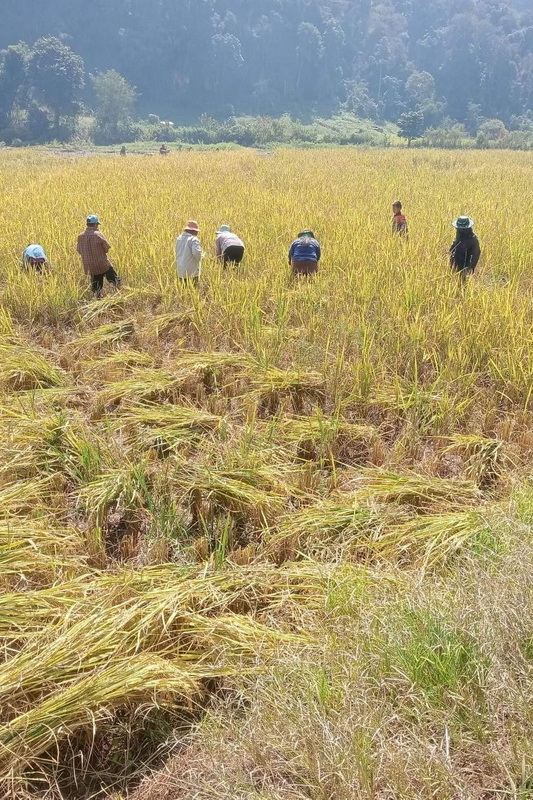
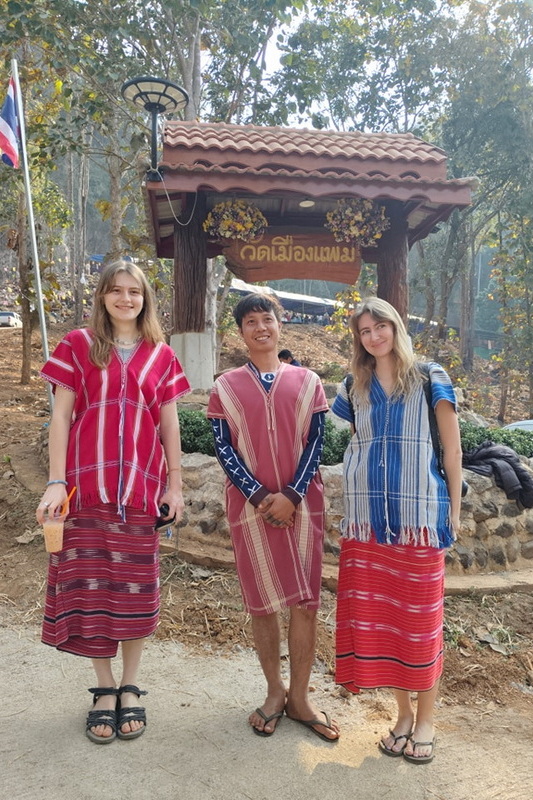
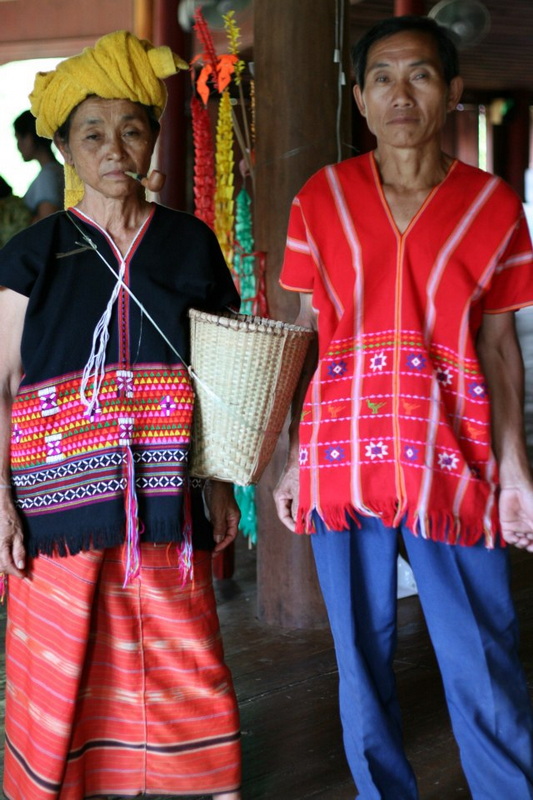
🛣️ How to Get There
To reach Ban Muang Pam , start your journey from Chiang Mai via the Mae Hong Son loop tour, passing through scenic routes like Pai and Mae Sariang.
From Mae Hong Son town , head north toward Tham Lot Subdistrict , following signs to Ban Muang Pam . The final stretch is unpaved and best traveled by 4WD vehicle, especially during the rainy season.
Shared minivans and motorbike rentals are available from Mae Hong Son for independent travelers.
Step into a world where tradition still breathes and nature still sings — Ban Muang Pam awaits with open arms and timeless stories.
📸 Nearby Villages Worth Visiting
Known for its eco-friendly practices and tranquil environment, this village invites slow travel and deep cultural immersion.
A peaceful hill tribe village perched atop a ridge, offering panoramic sunrise views and serene landscapes.

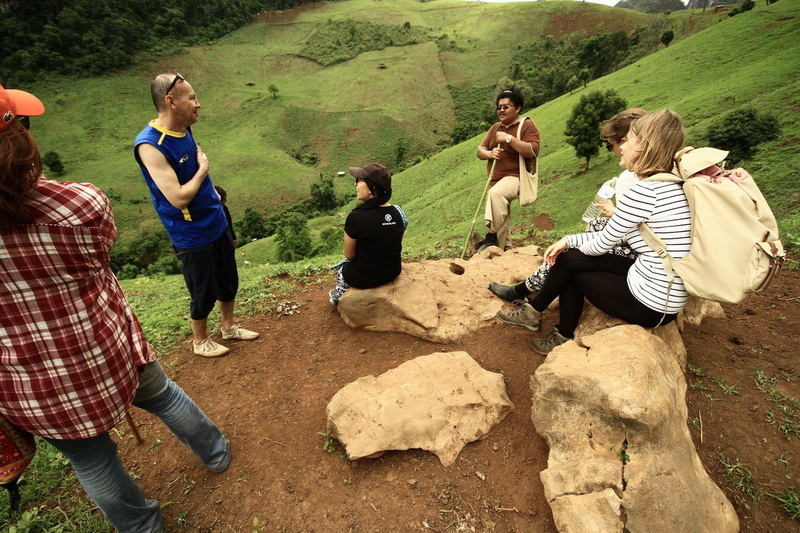

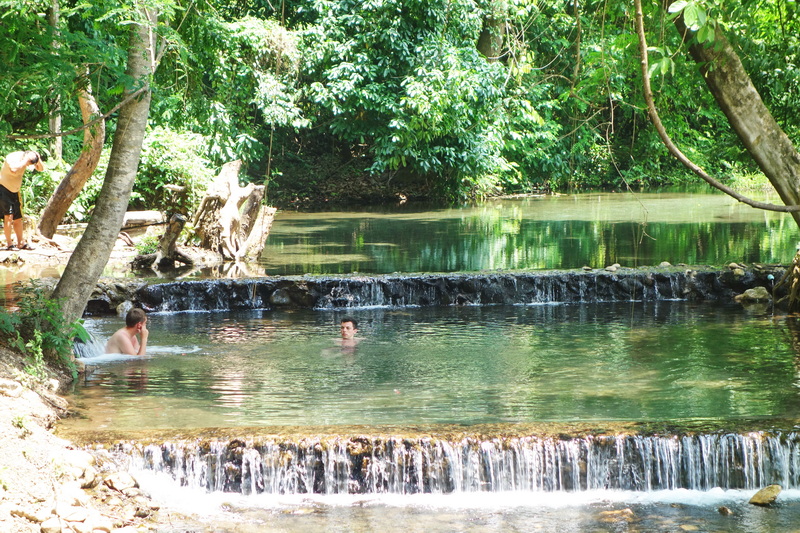
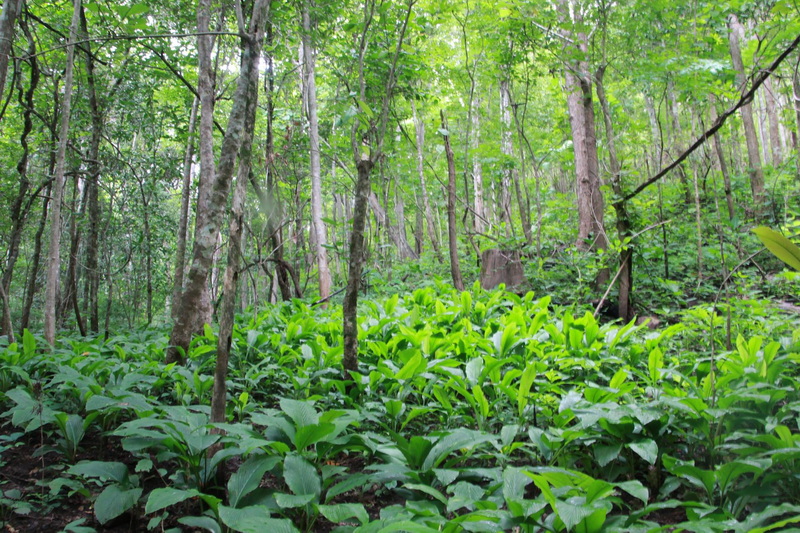
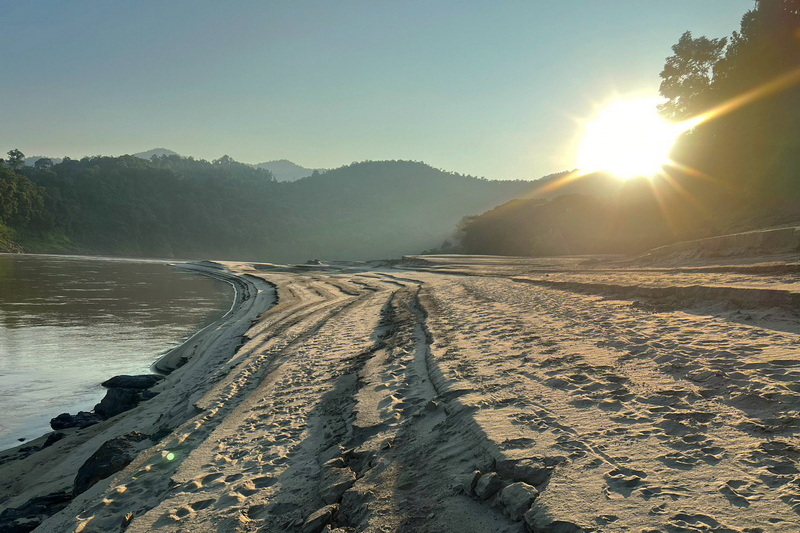
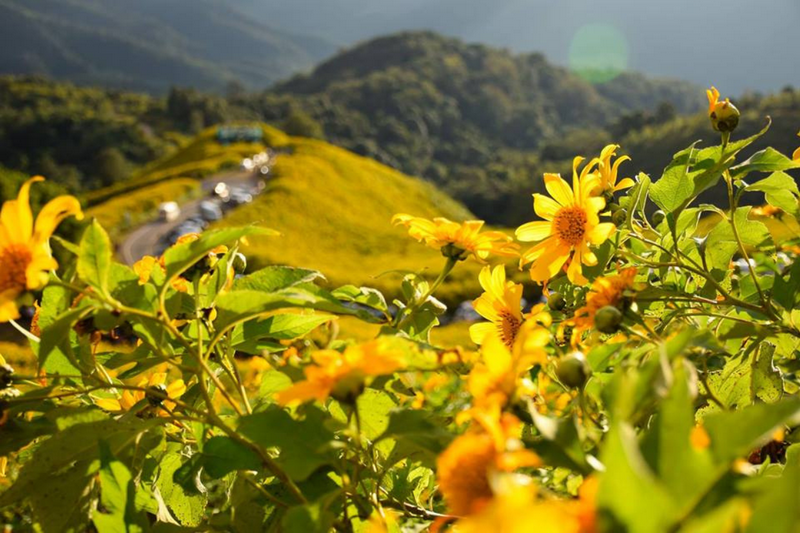

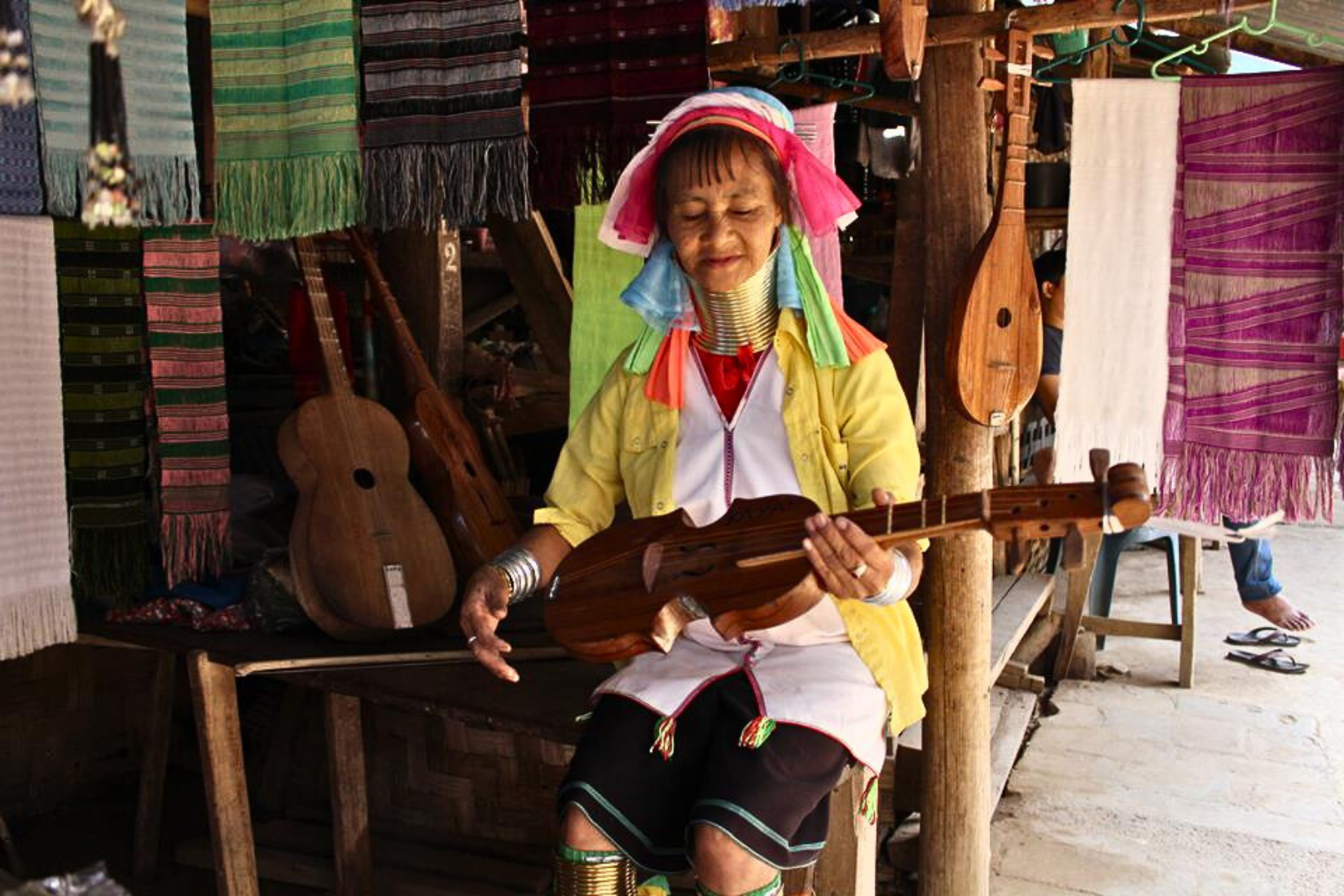







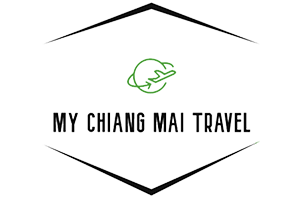





Leave A Comment